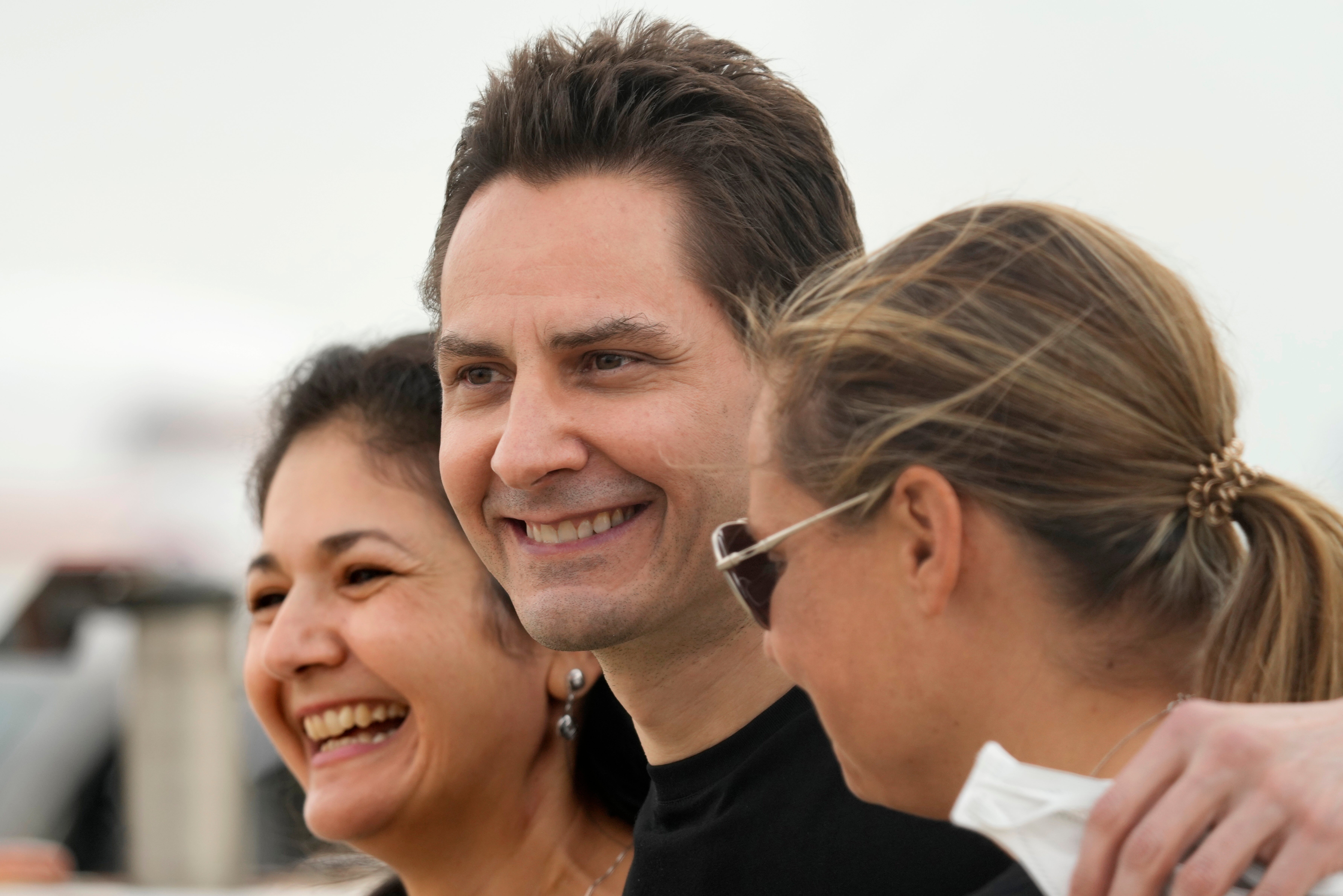China: 2 Canadians in prisoner swap freed for health reasons
China's Foreign Ministry says that two Canadians who were detained in late 2019 but have been allowed to return to Canada were released on bail for health reasons

Two Canadians detained in late 2019 who were allowed to return to Canada in a prisoner swap were released on bail for health reasons, China s Foreign Ministry said Monday.
A ministry spokesperson made the comment as Beijing sought to downplay the connection between their release and the return to China of a long-detained executive of Huawei Technologies.
Canadians Michael Spavor and Michael Kovrig were detained in December 2019, days after Huawei’s chief financial officer, Meng Wanzhou was arrested in Canada at the request of U.S. authorities.
Many countries labeled China’s action “hostage politics,” while China accused Ottawa of arbitrary detention. The two Canadians were jailed for more than 1,000 days.
Meng fought the U.S. demand for extradition from Canada. She landed in China on Saturday after reaching a deal with the U.S. Justice Department that led to a prisoner swap.
“The case of Meng Wanzhou is completely different from that of Michael Kovrig and Michael Spavor in nature,” Foreign Ministry spokeswoman Hua Chunying told reporters at a daily briefing on Monday.
The two men were suspected of endangering national security, Hua said.
Spavor, an entrepreneur, had been sentenced to 11 years in prison, accused of spying. Korvrig had not yet been sentenced but was facing similar charges.
China released the two Canadians on bail after a “diagnosis by professional medical institutions, and with the guarantee of the Canadian ambassador to China,” Hua said.
Hua did not answer questions from journalists about whether the prisoner releases were entirely unrelated and what the health reasons were.
A spokesperson for the Canadian embassy in Beijing directed questions to Global Affairs Canada in Ottawa.
Meng reached an agreement with U.S. federal prosecutors that will drop fraud charges against her next year. In return, she is accepting responsibility for misrepresenting the company’s business dealings in Iran.
Her return to China was broadcasted live on the country's central broadcaster, CCTV, as she wore a red dress the shade of China's flag and thanked the country's leader Xi Jinping and the ruling Communist Party.
On Monday, Hua said Meng was a victim of “political persecution" and was able to return to China thanks to the “government's unrelenting efforts.”
In contrast, news about the release of the two Michael's was reported by the state-owned tabloid Global Times, and while the news spread online, it was not carried by more authoritative state media agencies like CCTV or Xinhua.
Huawei is the biggest global supplier of network gear for phone and internet companies. It has been a symbol of China’s progress in becoming a technological world power — and a subject of U.S. security and law enforcement concerns.
Former President Donald Trump's administration cut off Huawei’s access to U.S. components and technology, including Google’s music and other smartphone services, and later barred vendors worldwide from using U.S. technology to produce components for Huawei.
—-
Associated Press video producer Liu Zheng contributed to this report.
Bookmark popover
Removed from bookmarks